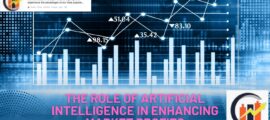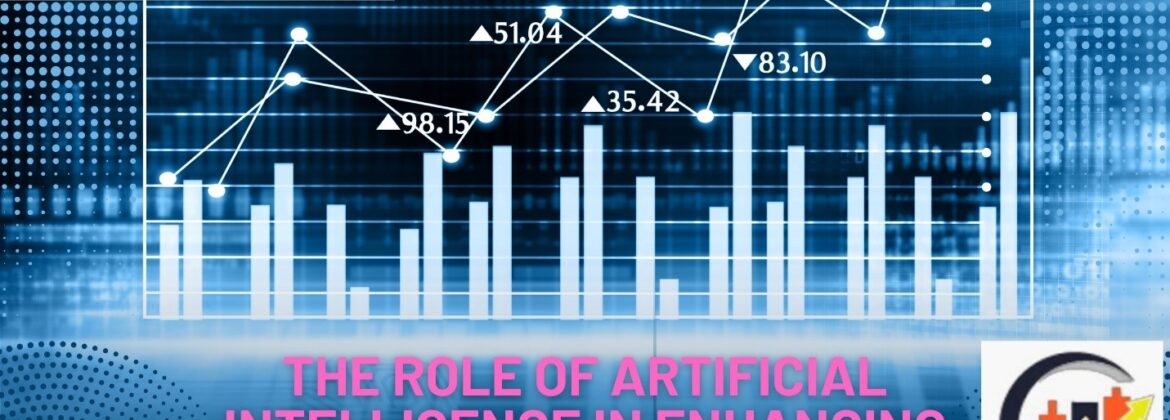Economic Central Bank Trading


Artificial intelligence (AI) has become a game-changer for retail traders in the banking industry, where every second matters and choices are frequently made in the blink of an eye. The days of relying only on manual analysis and gut feelings are long gone. Modern AI algorithms that are outfitted with cutting-edge machine learning strategies are giving traders access to hitherto unheard-of insights, expediting procedures, and eventually increasing profitability.
The conventional method of trading has never been without difficulties. Retail traders have found it difficult to compete with institutional players who have access to cutting-edge technology and substantial resources, as they frequently operate with limited resources and knowledge. But the introduction of AI has leveled the playing field, giving regular traders access to advanced tools and tactics that were previously only available to a select few.
The ability of artificial intelligence (AI) to evaluate massive volumes of data at speeds well above human capacity is one of the main ways that AI is simplifying trading for regular traders. Artificial intelligence (AI) systems can recognize patterns and trends that human traders would miss by analyzing market data, news articles, social media sentiments, and other pertinent information in real-time. Retail traders may now respond quickly to shifting market conditions and make better-informed judgments.
AI-powered trading systems can also automate a number of trading process steps, which minimizes the chance of human error and the requirement for manual intervention. These systems can perform mundane activities with accuracy and efficiency, from trade execution to portfolio management, freeing traders to concentrate on more strategic decision-making.
However, the capacity of AI to produce highly accurate forecast insights may be the most important advantage for traders. AI is able to estimate future price movements and uncover successful trading opportunities by analyzing past market data through machine learning algorithms. Retail traders can maximize returns and minimize risk by optimizing their trading tactics by utilizing this predictive power.
Let’s now explore the details of how individual traders are using AI to their advantage and improve outcomes:
1. Data Analysis and Pattern Recognition**: AI systems are highly proficient at analyzing big datasets and seeing minute patterns that could indicate future changes in the market. Artificial intelligence (AI) is able to recognize trading opportunities that human traders might miss by examining past price data, volume trends, and other market factors.
2. Risk Management: AI can be very helpful in this area. Good risk management is essential in trading. Artificial intelligence (AI) algorithms can assist retail traders in implementing more sophisticated risk management tactics, like position sizing and stop-loss levels, by evaluating market volatility, asset correlation, and other risk indicators.
3. Algorithmic Trading: Also known as “algo trading,” algorithmic trading uses pre-programmed instructions to automatically execute trades based on predetermined criteria. Algorithms driven by AI have the ability to adjust to shifting market conditions and improve trading tactics over time, which might result in increased returns and decreased transaction costs for individual traders.
4. Sentiment Analysis: News stories and social media posts can significantly affect the mood of the market and, in turn, the pricing of assets. Real-time monitoring of news headlines and internet discussion by AI-powered sentiment analysis technologies can give traders important information about the mood of the market and possible price changes.
5. Portfolio Optimization: By examining different asset classes, risk-return profiles, and correlation matrices, AI systems can assist retail traders in optimizing their portfolios. Through systematic portfolio diversification and periodic rebalancing, traders can effectively mitigate risk and optimize profits in the long run.
It’s important to remember that while artificial intelligence (AI) can improve trading outcomes, it’s not a panacea and has its limitations. AI algorithms are not impervious to biases or mistakes, and market conditions are not always predictable. Furthermore, the 95% accuracy rate you cited in your query is extremely ambitious and might not be achievable in real-world situations. Trading performance can undoubtedly be enhanced by AI, but traders should approach the technology with reasonable expectations and support AI-driven strategies with their own knowledge and discretion.
In summary, the use of artificial intelligence has revolutionized the retail trading scene by providing traders with strong instruments and knowledge to confidently traverse intricate marketplaces. Retail traders can take advantage of fresh possibilities, improve their methods, and eventually outperform one another in the cutthroat world of finance by utilizing artificial intelligence’s predictive capacity. AI’s influence on retail trading is expected to increase as it develops further, bringing in a new era of innovation and opportunity for traders everywhere.
PPAF

Leave A Comment